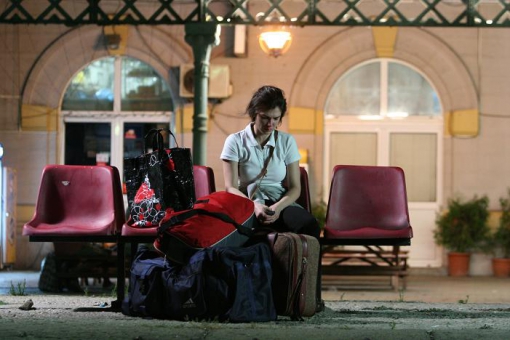Eastern-Central Drift
International Film Festivals Forum “Eastern-Central Drift” is being held for the 2nd time in Vilnius More »
Two Francescas

Maria Francesca Cabrini was a famous social worker who bettered Italian communities in Chicago and New York at the end of 19th century. For her efforts which included founding orphanages, kindergartens, schools and hospitals for immigrants in America she was canonized by the Roman Catholic Church in 1946 (Pope Pius XII era).
This film is not about Francesca Cabrini. It's about a 30 year old Romanian woman who wants to change her life by emmigrating to Italy and finding a job that would allow her to live in dignity. She also has a dream of founding a kindergarten for Romanian immigrants near Milan which connects her with the original Francesca. This connection is important as the director seems to suggest that the Italians, especially their right-wing politicians, managed to forget that they were once *migrants. Now they want to get rid of the Romanian minority from the country who came there for better life.
Fortunately, Bobby Paunescu is not accusing anyone. He makes the same amount of fun of the silly Italian politicians who believe that Romanians "have crime in blood" as he makes of his own folks who picture Italian men as ever-horny machos interested only in abusing their women.
If you happen to be Italian and hate the Romanian immigrants (or be German and hate the Turks, or be American and hate the Mexicans, or be French and hate the Arabs), "Francesca" shows you the other side of the story. It focuses on the preparation to the journey, not the stay itself. It shows the sacrifices people have to make in order to get to the promised heaven in a neighboring country only to find out it's more or less same hell as back home.
Francesca is a representative of so called Romanian New Wave. It's austere, realist and minimalistic. It also completely lacks music and uses extremely long cuts, sometimes leaving us wondering for their purpuse. This does not make it an easy watch. But if you are looking for amazing cinematography or fine images of Romanian country, you also need to look elsewhere (go see Katalin Varga for instance). Paunescu is not interested in art. Or at least, it's not his major aim. He's interested in telling a story. He wants to pass a message, to both Italians and Romanians. That message could be simplified to one sentence: Do not pre-judge and recall your own history.
Read all: Francesca [Filmaster.pl]





